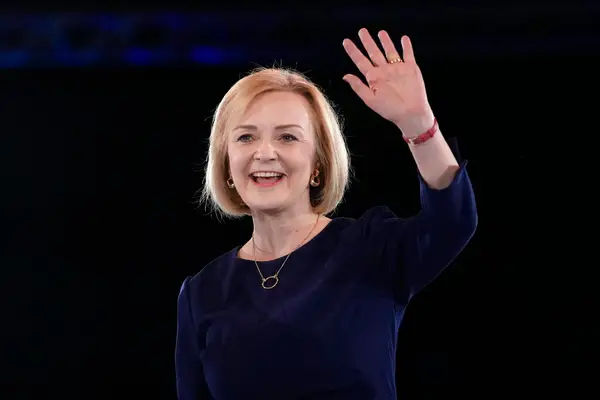Liz Truss on Monday was elected as the leader of the ruling Conservative Party and the UK’s next prime minister. The country is currently experiencing a cost of living issue, industrial discontent, and a recession.
Truss won the vote of Conservative Party members after weeks of a contentious and frequently acrimonious leadership race that pitted the foreign minister against former finance minister Rishi Sunak.
Also read: Liz Truss ‘has the right plan,’ believes outgoing UK prime minister Boris Johnson
According to UK bookmaker William Hill, Liz Truss is likely to serve as prime minister for fewer days than Theresa May, who held office for 1,106 days.
After defeating Sunak in the battle to succeed Boris Johnson as leader of the Conservative Party on Monday, Truss is expected to be named the new prime minister of the United Kingdom. In a closer-than-expected race, Truss received 57% of the party members’ votes.
“We don’t expect her to last very long in office and in fact make her just 4/6 to be in charge for less time than Theresa May, while we’re not totally ruling out her serving the shortest reign in history at 50/1,” Tony Kenny, a William Hill spokesperson said.
Truss is a new kind of prime minister because she was given the power to rule by her extra-parliamentary party membership rather than by the actual parliament. Given this, advocates of representative democracy should be wary. It will pose issues.
Also read: Jeremy Corbyn asks Liz Truss, new UK Prime Minister, to tackle cost-of-living crisis
As the Daily Mail accurately points out, a party membership election is even more vulnerable to outside influence than a general election, which is governed by regulations to ensure some type of balance. Additionally, a membership ballot naturally results in more partisan voters.
This might not be as significant in practise as it is in theory. The country’s economy and cost of living are on the verge of a hurricane-force catastrophe. The Tory party at Westminster will unquestionably back its new leader, at least for a few weeks. However, the occasion and everything it stands for will be meaningful.
Truss will in fact act as a prime minister chosen outside of parliament. Since the unreformed era, almost 200 years ago, when monarchs still picked their first ministers, this has not happened in Britain’s parliamentary system. It will have political effects and possibly constitutional ones as well.
Also read: Liz Truss, as the new UK prime minister, promises tax cuts
It is troublesome in theory and in practise to let members of any political party choose the prime minister. It inevitably changes the institutional balances within a representative government system, like that of Britain. However, it’s too late to go back.
Prime ministers who win general elections are unquestionably supported by the country. People who join the team in the midst of the semester simply get theirs by default. Politicians who were recently elected have expressed alarm about this. Gordon Brown, Theresa May, and Boris Johnson all set out early in their Downing Street careers to secure their own special mandates. Brown wasted the opportunity to take it. May exceeded hers. Johnson joyfully took hold of his.
The incoming prime minister will, however, unavoidably need to thoroughly demonstrate her new kind of legitimacy. It won’t be straightforward. She must manage a parliamentary party that did not want her to be the leader (as happened to Labour under Jeremy Corbyn); select ministers willing to serve while disagreeing with her approach; deal with an increase in sharp former ministers on the backbenches (including Johnson and Michael Gove), and convey a legislative agenda without the major backbench uprisings that every once in a while have made the modern Tory party almost unmanageable.
Also read: Unite behind the new PM, Liz Truss: Rishi Sunak after loss
Above all, Truss must win the general election held within the next two years. As is the case with the majority of midterm prime leaders, she will logically want to continue in office until an election cannot be avoided. This was done by Gordon Brown, John Major, and James Callaghan. She might, however, come to the conclusion that things can only get worse as she faces growing energy costs, inflation that is out of control, and a health system that is in disarray.
Truss is a gambler who takes risks, but that is the only thing we can say with certainty about her. She is situated at the entrance to Downing Street for this purpose. She might not have a choice but to hold an early general election in order to reinforce her shaky mandate despite all the risks.







